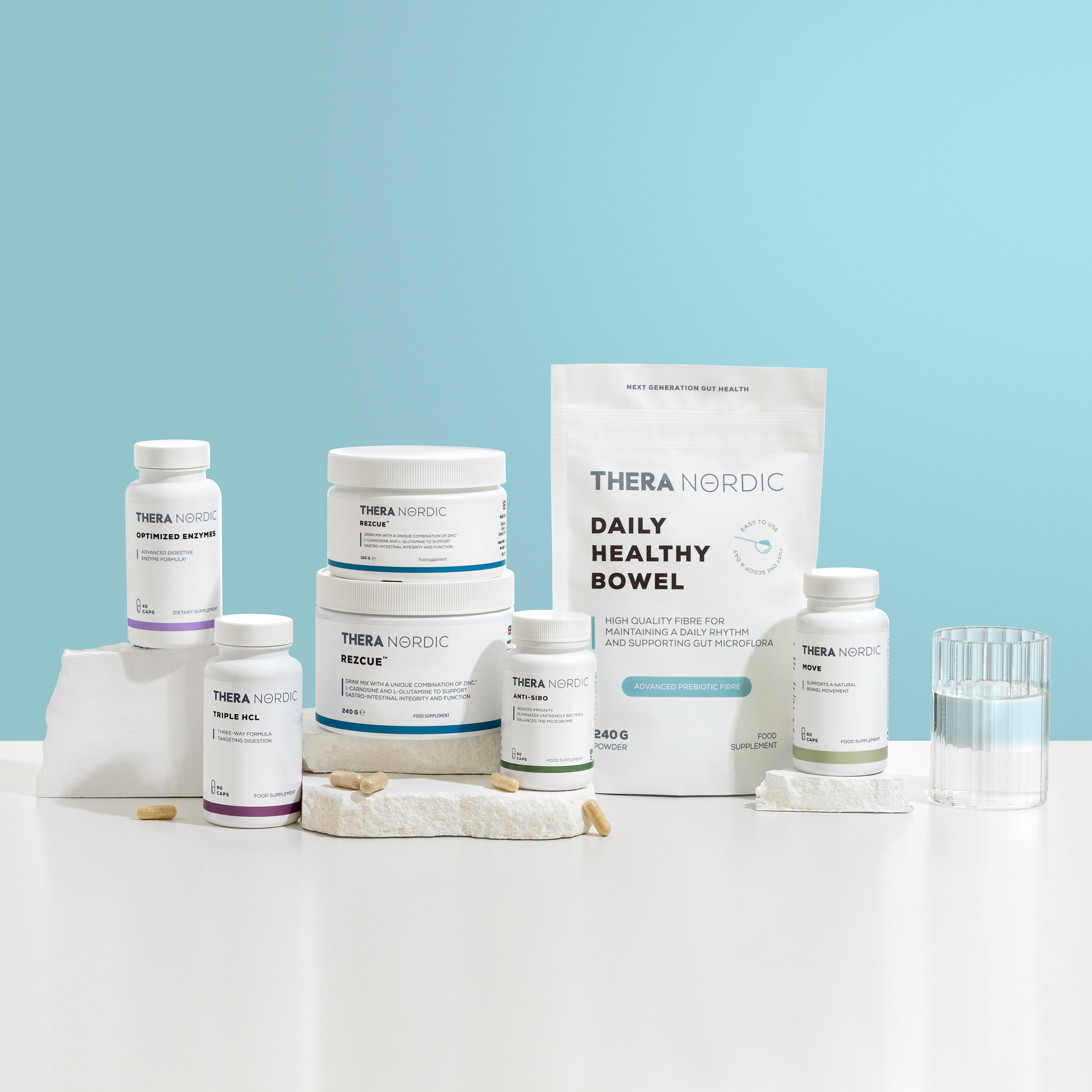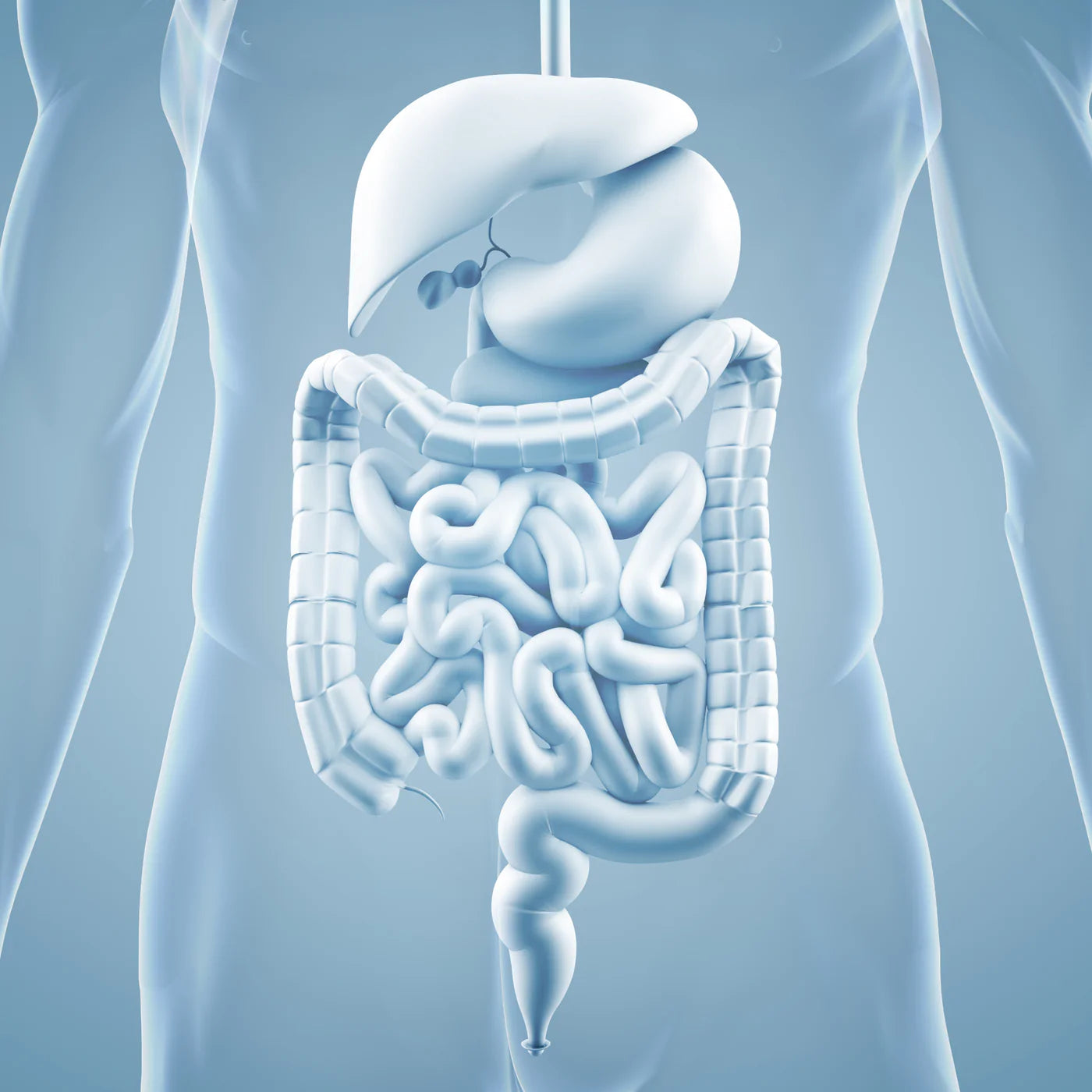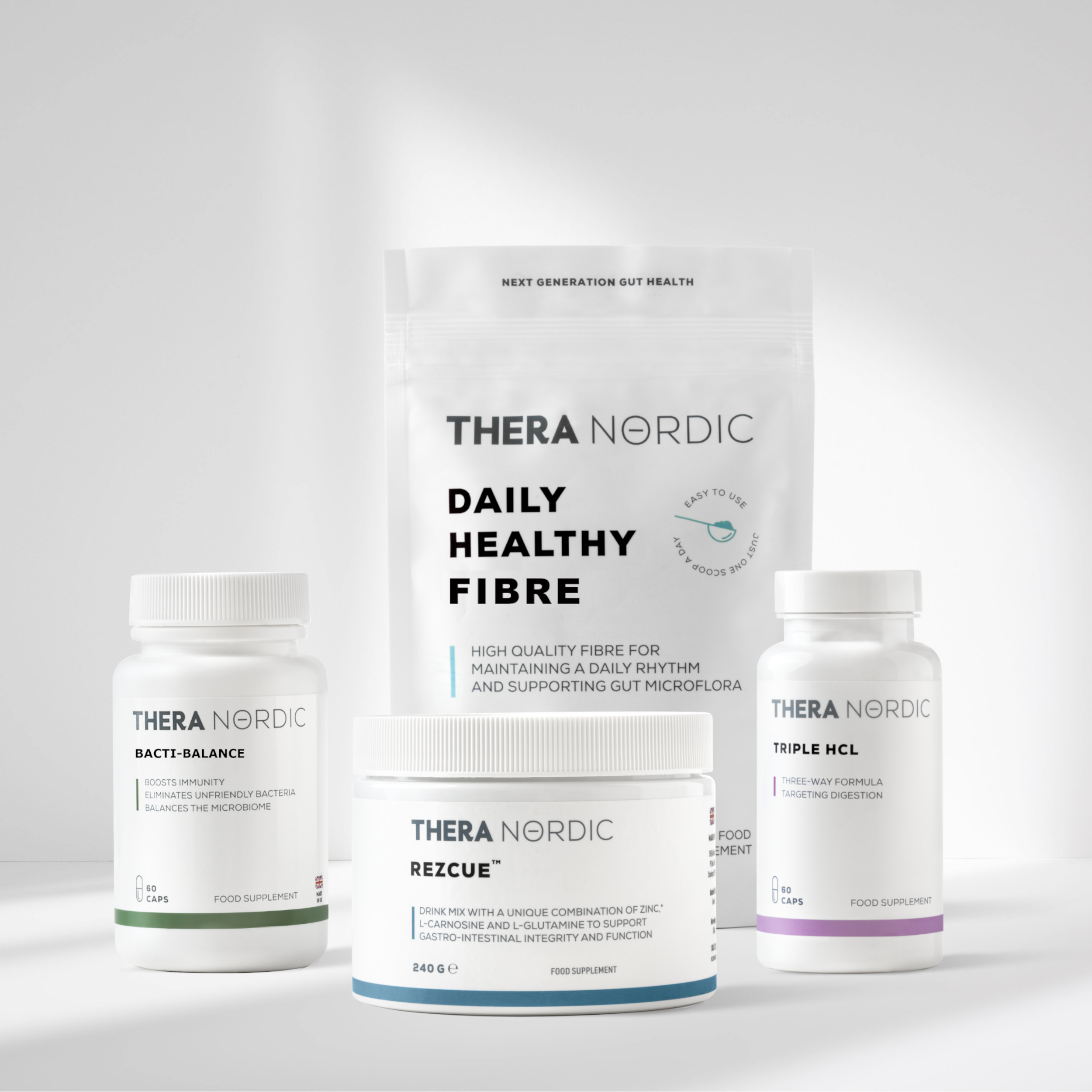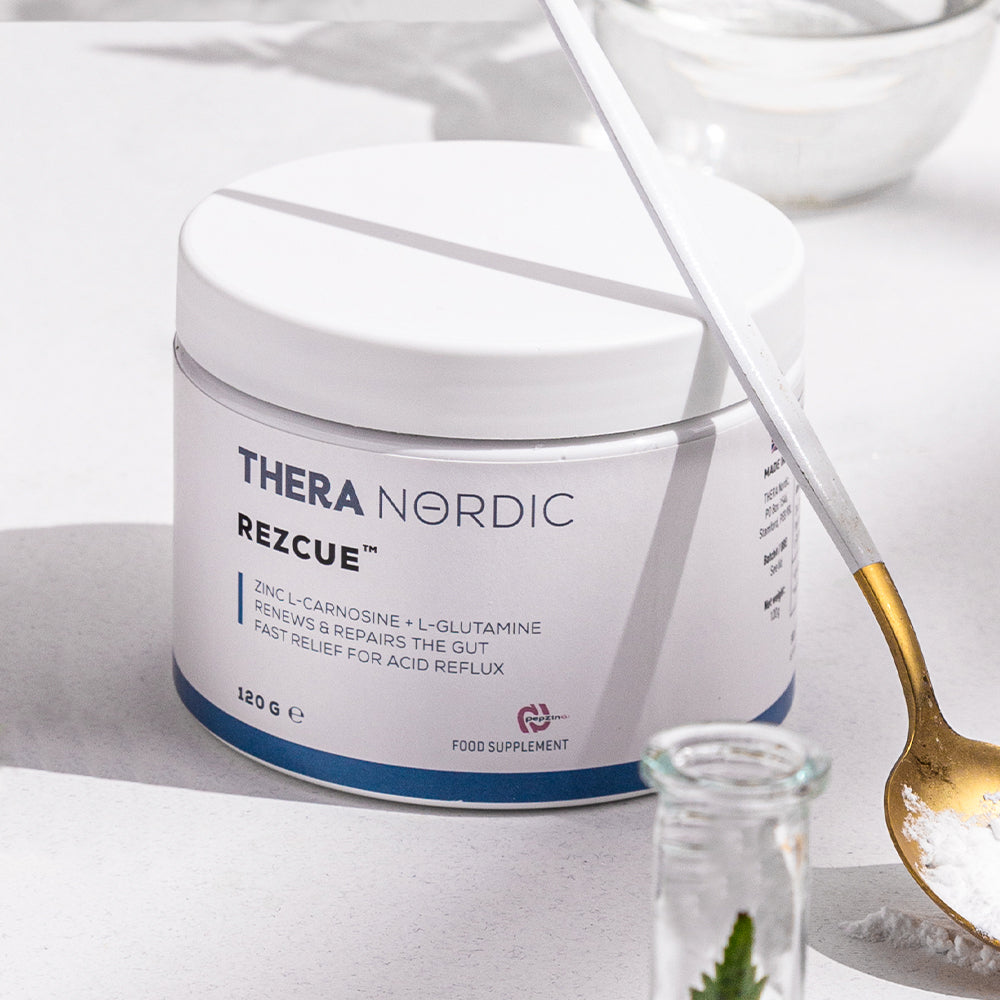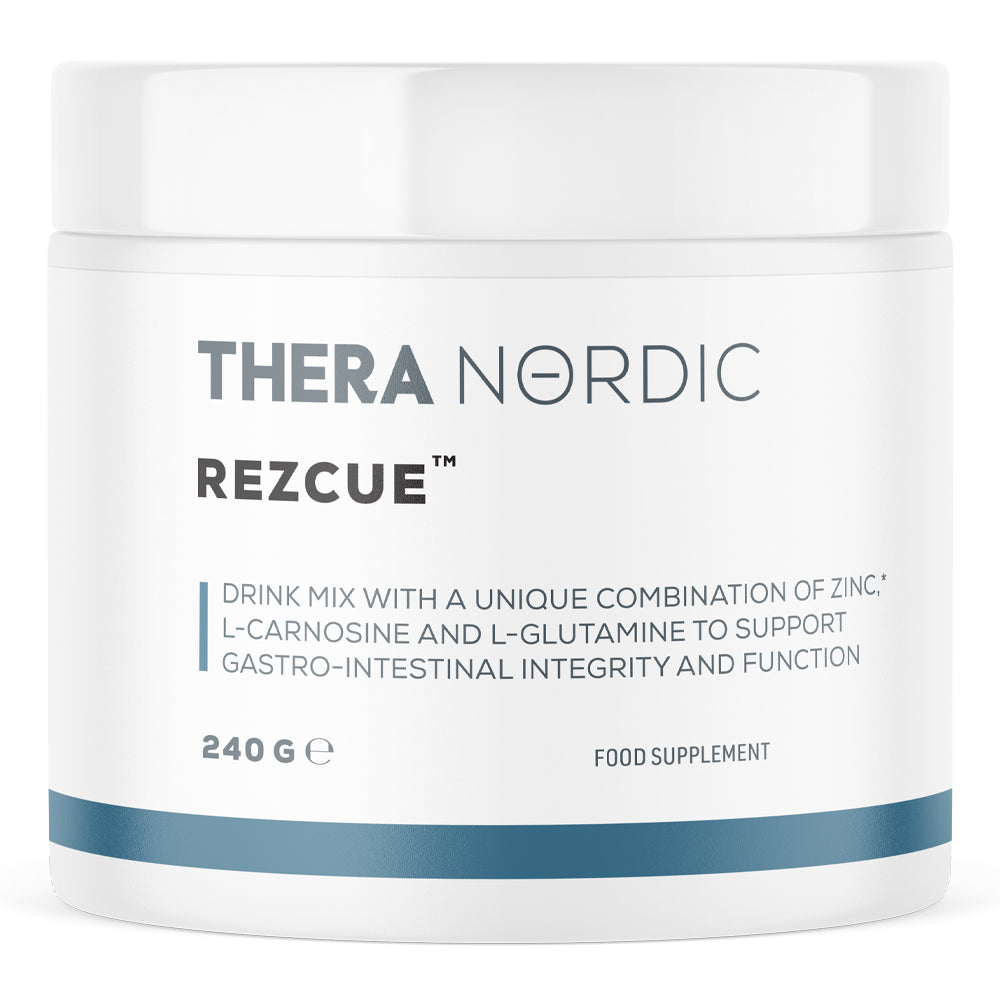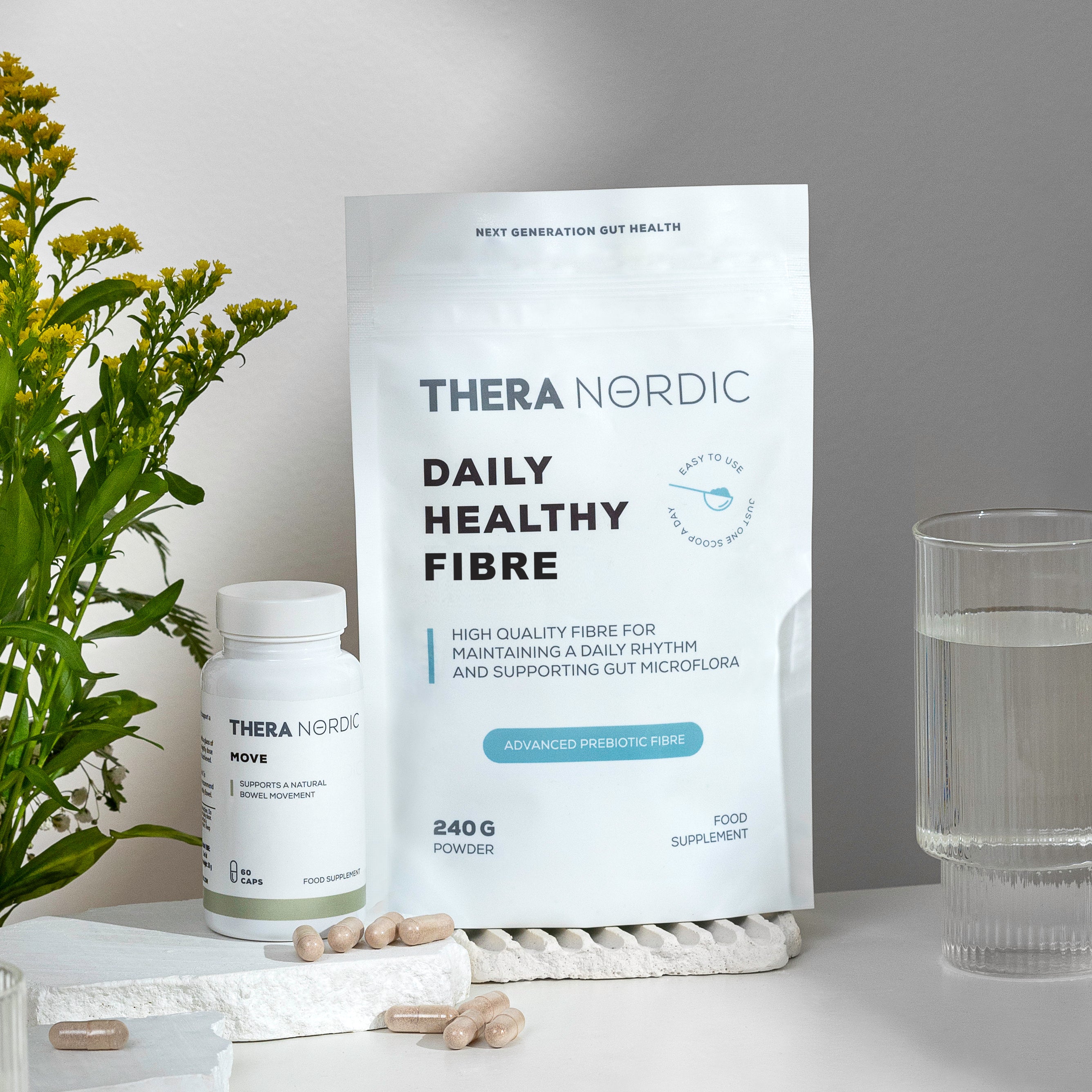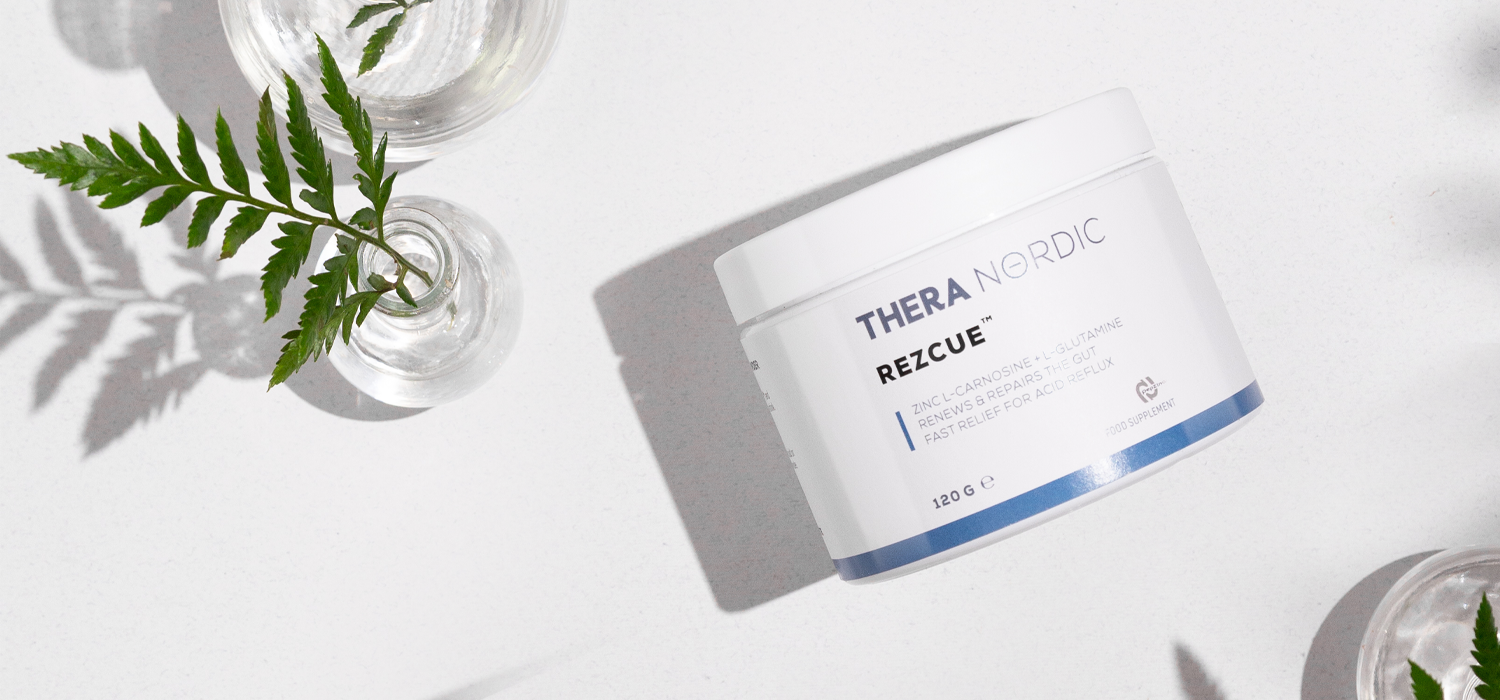The term Leaky Gut is widely used, but it can cause some confusion. In this article we'll taker a closer look at the term, discuss whether or not it is something to to worry about, and what you can do to treat it.
What is Leaky Gut?
Inside our small and large intestine the topmost layer is only one cell thick. This is called the epithelium. This thin membrane separates the contents of the bowel from our body and it is supposed to be very tightly controlled border.
Between these epithelial cells are so-called “tight junction proteins”, which could be likened to cells holding hands to hold the line. Anything that is not water — or fat-soluble gets blocked, and anything undigested stays out.
Sometimes our body, in a controlled manner, opens these junctions and lets some undigested material pass, for example, to study bacteria and gather information about what is happening inside the bowel. Just rigorous exercise alone will induce some level of increased gut permeability! So, this mechanism exists for a reason.
The problem is that when your gut permeability increases as a symptom of some other external factor. Then the body does not control these junctions correctly and the gut permeates undigested food and particles into the blood. As 70% of our immune system is located in the gut, it gets alerted and starts attacking to protect us.
So leaky gut is not of concern when it happens now and then. But when this it is continuous it causes steady inflammation in the body.
Does modern science acknowledge Leaky Gut?
Yes, it does, although leaky gut is not the scientific term. However, the acknowledgement of the process is not really a debate. The most well known example is alcohol-induced liver cirrhosis: A dysbiosis (imbalance in the gut) causes leakage which lets infectious agents infiltrate the liver. If you are interested in the science, you can read more about this study here.
Recent studies investigate the connection between leaky gut and heart disease. But there’s more. Inflammatory Bowel Diseases and Autoimmune Diseases have also been shown to have a connection with leaky gut.
Increased gut permeability is a well established fact. However, in normal everyday life the term “Leaky Gut” is just more convenient – but both mean the same thing.
Not a syndrome
So now we understand that Leaky gut is basically a street name for the actual phenomenon which is known as increased intestinal permeability. Since these terms do not refer to a recognised medical condition we do not think it is useful to use the word “syndrome” with it. Rather, Leaky Gut is a consequence of something irritating the gut. The issue is not the leakiness itself, but instead what causes the irritation and inflammation. Once the inflammation and bowel health is addressed, Leaky Gut stops naturally.
How serious is Leaky Gut
It is not serious in normal everyday life. It may come with uncomfortable symptoms and should be addressed, but it is not dangerous in itself. Only when there are comorbidities like suppressed immune system or something else in the mix, can it become more of a concern.
But for 99% of us, it can be likened to a high blood pressure or high cholesterol. It is wise to start taking care of it, but stressing about it will just make it worse. Fortunately the solutions are easy and support the well-being of the whole body.
Causes of Leaky gut
Leaky gut can lead to a range of symptoms including inflammation(1), allergies(2) and autoimmune(3) disorders. The causes are not fully understood but there are several factors that are believed to contribute to the condition. These include:
- Poor diet: A diet that is high in sugar, processed foods and unhealthy fats leads to poor microbial diversity, which in turn can damage the gut.
- Chronic stress: Stress can increase the production of cortisol, a hormone that can damage the intestinal lining.
- Antibiotics: Overuse of antibiotics can disrupt the balance of bacteria in the gut leading to inflammation and damage to the intestinal lining.
- Environmental toxins: Exposure to toxins such as pesticides, herbicides and heavy metals can damage the intestinal lining and contribute to leaky gut.
Symptoms of leaky gut
Symptoms can vary from person to person but some common signs include:
- Digestive issues: These can include bloating, gas, constipation, and diarrhoea.
- Food intolerances: Individuals with leaky gut may be sensitive to certain foods and experience symptoms such as headaches, fatigue and joint pain after eating them.
- Autoimmune disorders: Leaky gut has been linked to autoimmune disorders such as rheumatoid arthritis and lupus.
- Skin issues: Eczema, acne, and other skin issues can be a sign of leaky gut syndrome.
- Fatigue: Chronic fatigue and low energy levels are common symptoms of leaky gut syndrome.
How to help leaky gut
In the long run what is mostly responsible for the health of the gut lining is the microbiome – the bacteria living inside the gastrointestinal tract. When the bacterial balance is good, it will automatically take care of the gut lining. That is the job of the good gut bacteria, and there is no supplement in the world that would do it better!
Our bacteria are the heroes that look after us, but, they rely entirely on us to survive. It is a two way street. As some further reading once you have finished this article I would encourage you read our article on pre and probiotics to learn more about how to make sure your gut bacteria can thrive.
What can help quickly?
Two natural supplements that have been shown to be helpful for those with leaky gut, regardless of reason, are L-Glutamine (4,5,6,7) and zinc L-Carnosine (8,9,10)
L-Glutamine is an amino acid that is naturally produced by the body. It plays a vital role in maintaining the health of the intestinal lining. L-Glutamine is also an important source of energy for the cells that line the intestines. When the body is under stress, such as during illness or injury, the demand for L-Glutamine can exceed the body's ability to produce it. Supplementing with L-Glutamine can help to support the health of the intestinal lining and reduce inflammation.
Zinc L-Carnosine is a combination of zinc and the amino acid L-Carnosine. This supplement has been shown to be effective in reducing inflammation in the intestines and protecting the intestinal lining from damage. Zinc L-Carnosine has also been shown to improve the symptoms of irritable bowel syndrome (IBS), a condition that is often linked to leaky gut.
In addition to taking supplements, making dietary and lifestyle changes can also be helpful in managing leaky gut. A diet that is rich in whole foods, including fruits, vegetables, and lean protein, will help to support the health of the intestinal lining.
Conclusion
In conclusion, leaky gut can cause a range of symptoms and can be difficult to diagnose. If you suspect that you may have leaky gut, it is important to consult with a healthcare professional for proper diagnosis and treatment of the underlying cause.



